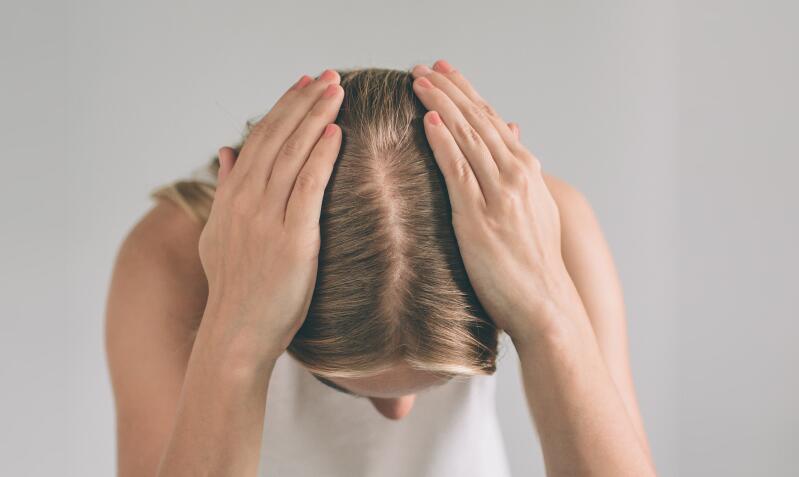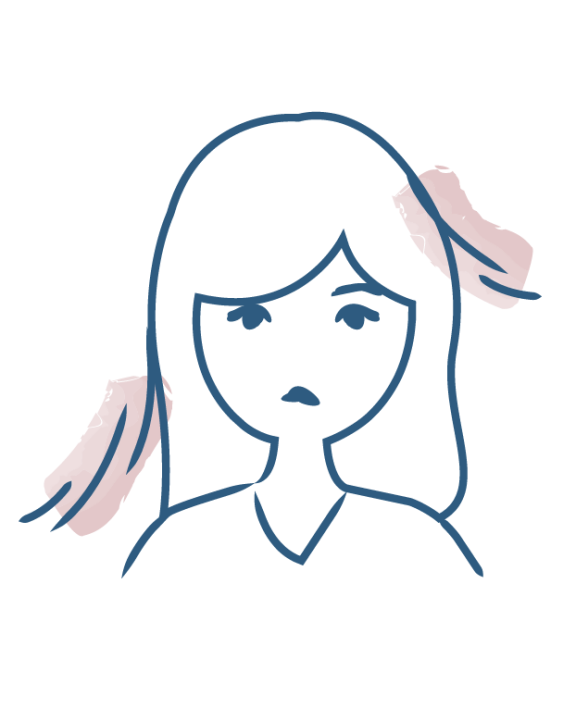-
Your concerns
Our articles to help you gain a better understanding
-
Our solutions
-
Ducray Dermatological laboratories
Our articles to help you gain a better understanding

Hormonal changes are among the most common causes of hair loss in women. Discover everything you need to know about hormonal hair loss in order to better treat this pathology.
Hormones are closely linked to hair loss. Hormones have the power to affect the entire body, including the scalp and thus the hair. Hormonal changes are implicated in nearly all physiological problems relating to hair loss, be it occasional, acute, chronic or genetic.
The choice of oral contraceptive and the onset of menopause are among the major hormonal factors that can accentuate chronic hair loss, scientifically referred to as “chronic telogen effluvium”. It provokes sporadic hair loss over a period of more than six months. A shortening of the anagen phase is the most commonly cited mechanism, resulting in shorter hair that goes through a shorter hair cycle and thus falls out more often.
The mechanism by which androgenetic alopecia manifests is also hormonal and involves the androgen receptors found in the hair’s dermal papilla. This hormonal hair loss thus leads to diffuse hair loss over the entire head, leading patients to consult a dermatologist in the aim of finding a treatment to curb hormonal hair loss.
The hormonal changes observed during the postpartum period often trigger a type of hair loss scientifically known as “acute telogen effluvium”, more commonly referred to as postpartum hair loss. In fact, during pregnancy, most mothers-to-be observe a significant improvement in the quality of their hair thanks to increased levels of estrogen hormones. In contrast, once the pregnancy is over, these levels drop, and some women begin to lose hair in clumps. Acute telogen effluvium will affect one-third, or even half, of women after a pregnancy*. This is a perfect example of the significant role hormones play in hair loss.
There is no miracle cure for hormonal hair loss in women, but some molecules can actively slow down hair loss and promote regrowth. Targeted shampoos, anti-hair loss lotions, and food supplements must become your closest ally after a pregnancy.
* Source: Grover and Khurana, 2013
Loss of hair density, thinning hair

Reactional loss of hair volume

Chronic loss of hair density

Reactional loss of hair volume

Reactional loss of hair volume

Chronic loss of hair density
NEWSLETTER
Dermatological expertise
To better understand your skin and hair, discover our exclusive content and innovative care products designed to improve your quality of life..